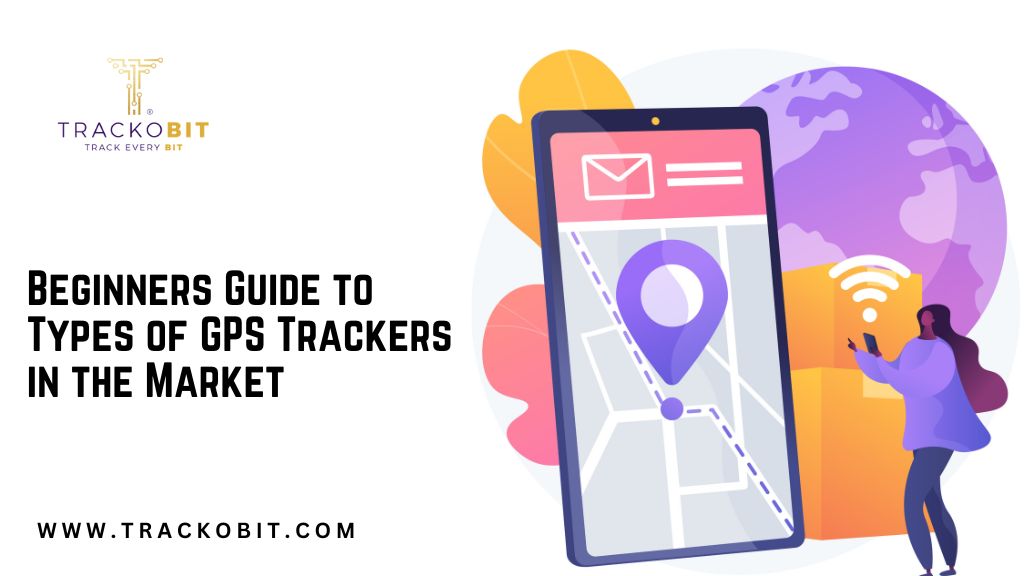GPS trackers are one of the most irreplaceable devices for businesses and individuals today. Their ability to contribute to vehicle visibility, tracking, monitoring, and security aids fleet management big times. Not only does it aid in real-time monitoring, but when combined with powerful video telematics solutions, it also helps lower insurance costs.
What are GPS Trackers?
GPS trackers are mechanical instruments and devices that leverage global positioning systems to help identify the real-time location of a vehicle, person, or even immovable assets like consignment or any object. However, these trackers do not work alone, they need GPS tracking software to help collect and transmit the geo-location.
GPS trackers are helpful for:
- Tracking location and movements in real-time
- Preventing asset theft
- Ensuring individual safety
- Ensuring efficient fleet and asset monitoring
- Enhance route planning
- Timely looking into anomalies to reduce operational costs
Let’s learn what types of GPS trackers are available in the market that you can make an easy selection from.
Read Blog: How to Choose the Right GPS Trackers in 2023? 5 Things to Consider!
Types of GPS Tracking Hardware — Based on Mechanical Built
-
Plug-in Vehicle GPS Trackers (OBD GPS Tracker)
Plug-in GPS trackers are easy to connect to any vehicle’s OBD II port. The port is generally located near the steering wheel. These trackers are very compact, and they are very easy to install and configure with a range of vehicles and software applications. Their plug-and-play feature comes in handy for various personal to commercial vehicles of choice.
And the best part? These trackers can easily switch between active and sleeping states. This helps save the vehicle’s battery and keep vehicle owners notified about the start and stop events of the vehicles.
-
Hardwired GPS Trackers
Hardwired vehicle GPS trackers are easy to connect with any vehicle directly. Very suitable choice when a vehicle lacks an OBD II port. These trackers are positioned discreetly under the dashboard. Hardwired trackers are favored by most commercial businesses looking to track and monitor diesel or hybrid vehicles.
-
Battery-powered, Portable GPS Trackers
The battery-powered or self-powered GPS trackers do not operate through the vehicle’s battery power. They operate through durable batteries and transmit data just like any other standard tracker would.
It’s a good option where tracking trailers, cargo containers, construction equipment, or even dumpsters is necessary. Many devices are available with long-lasting batteries that can sustain for months or even years — on a single charge.
However, the battery capacity of such trackers is dependent on how frequently they are used. For a vehicle, that on average, operates roughly for two hours — there the GPS tracker can survive for almost a week.
Types of GPS Trackers Based on Usability
Based on useability and preference, there are mainly 3 types of GPS hardware.
-
Vehicle GPS Trackers
Vehicle GPS trackers when added with capable fleet management software help track the real-time movement and location of any commercial vehicles. Such trackers are easy to install on the vehicle’s dashboard. These trackers use satellite signals to help relay insights on the vehicle’s real-time location, help with real-time tracking, prevent theft recovery, and optimise routes.
-
Employee Trackers
The functionality of an employee GPS tracker is best served when it’s used with modern field staff management solutions. Such trackers could be in the form of easy wearable devices or simply handheld devices. It is especially used by companies wanting to track the location, time, productivity, and efficiency of their field staff.
In most cases, companies go for external GPS hardware devices or wearables when they want to track their staff working in complex landscapes. For example, mine workers or construction workers.
Whereas, for field employees who are often reachable through their cellular devices, field tracking apps leverage GPS features from their phones. Such trackers are useful only when combined with field employee monitoring solutions. As they help fetch the location of on-site staff.
-
Personal GPS Tracker
Personal GPS tracking devices are suitable for tracking individuals. There are separate wearable or portable devices to track children, elderly people, or even animals. Many people prefer using tracking devices for their children who are specially-abled and have a high level of dependency.
For instance — Autistic children are very prone to get away from the sight of their families, guardians, or carers. During such events, tracking devices act as a savior. Also, elderly, aged people who are bedridden or suffering from alzheimer or dementia, benefit from such trackers a lot.
Further GPS Hardware Devices Types —- Based on Configuration
Additionally, there are some more 3 types of GPS tracking devices as following:
- Passive
- Semi-Passive
- Active
- Passive GPS Devices
Passive GPS hardware devices send continuous signals in a way that only the stated receiver receives them. These devices generally do not have any battery life, but despite that, they are a great option for tracking any vehicle or object across a large distance.
- Semi-passive Devices
With these devices, one has to be careful as they are extra sensitive. Meaning, that whenever they send a signal, they can get connected to any receiver that they are listening to.
But the signal only lasts for a couple of seconds — before it shuts down. This type is single-handedly not usable for tracking unless there are other devices on the same vehicle. It’s suitable for companies that have multiple drivers working on the same vehicle.
- Active Devices
Active GPS devices are battery-powered, out of all, they last longer and are trackable only via a receiver. They dispatch out signals at specific intervals of time, so the chances of losing any signals are slim to none.
Final Thoughts!
Wide types of GPS trackers are available in the market based on the use case, hardware, and configuration. GPS trackers are undeniably needed for fleet-carrying businesses and individuals looking for safety. The key is to pick the right ones based on the ones’ requirements, purpose, and needs.
To monitor and track every fleet, a vehicle GPS tracking solution is the key. Offered in a complete package of hardware, software, and data analytics — such solutions are very useful for fleet managers owning 100+ vehicles. Try a free demo of your future fleet monitoring solution with TrackoBit!
Source: Beginners Guide to Types of GPS Trackers in the Market




















